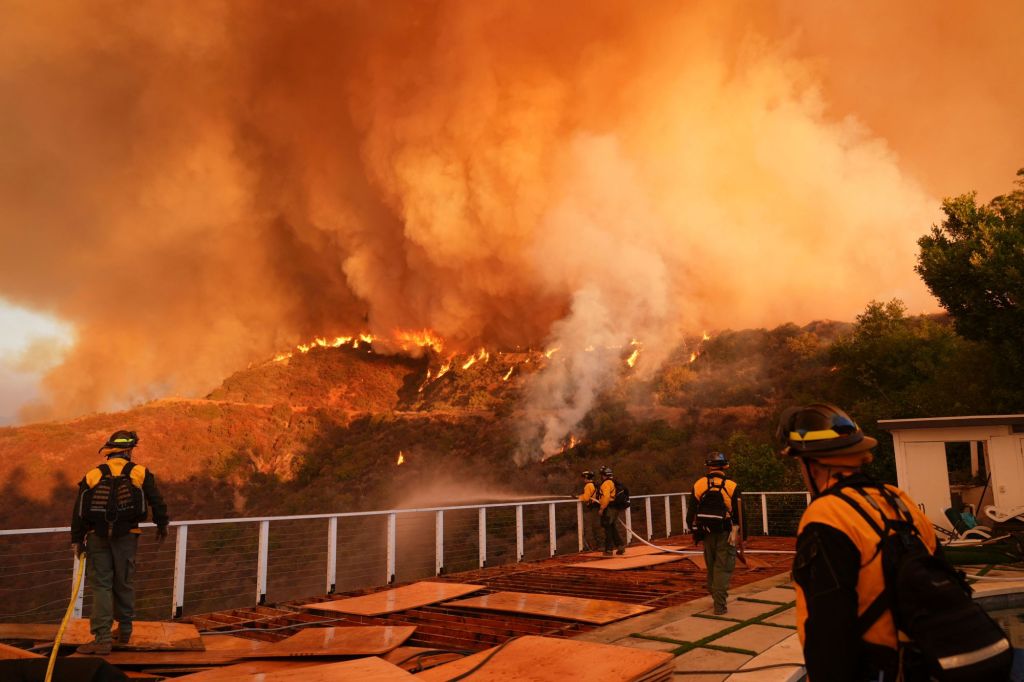Governor Gavin Newsom has finally unveiled a $322 billion state budget, and it is just as absurd as we anticipated. A budget symbolizes your priorities, but while California suffers, the governor’s recommendations encompass free healthcare for undocumented immigrants, $4.2 billion for deceptive bullet trains to nowhere, and “normalization.” He emphasizes over $150 million for trauma-informed prison initiatives. The Governor’s opulent San Quentin Rehabilitation Center.
In spite of expending more than $24 billion in the last five years to tackle homelessness, the budget also suggests establishing a completely new state agency to handle homelessness, resulting in no tangible outcomes. This embodies the essence of madness.
Californians are concerned about the trajectory of their state. They are weary of inflated costs and perilous streets. This is the reason California passed Prop. 36 with nearly 70% endorsement, despite the governor and Legislature’s attempts to exclude it from the ballot. Words are inexpensive, the outcomes carry significance, and voters are delivering a resounding message that they are prepared for transformation. It is clear that Governor Newsom did not receive the notification.
This disastrous budget adds insult to injury as Los Angeles County contends with the repercussions from four major wildfires. When the governor declared his budget on Monday, he quickly highlighted an anticipated $16.5 billion rise in revenue compared to the previous year. Less than a week later, the estimated expenses from these wildfires have already surpassed $150 billion. More than 30,000 acres have burned, countless individuals were compelled to evacuate, structures and businesses were obliterated, and tragically, at least 10 lives were lost.
Gov. Newsom wishes for us to accept this as the “new normal” in a world facing climate change and asserts that the state is doing everything it can to avert wildfires. To clarify, this unrestrained wildfire catastrophe is a direct consequence of years of ineffective forest management strategies and Congress’s fixation on radical environmentalist agendas.
California has been governed by Democrats for nearly two decades, and this is the outcome. Our “leaders” have failed us. It is disgraceful that Governor Newsom persists in holding special legislative sessions aimed at promoting California as “more resilient against Trump.” Rather than squandering millions on political performances, our focus should be on making our state fire-resistant. For that reason, I am urging the Governor to promptly convene a special legislative session dedicated to wildfire mitigation. We must adequately fund fire prevention, reform CEQA, and tackle our malfunctioning insurance market.
Support for fire prevention initiatives is critically insufficient. In the 2021-2022 budget, the state allocated around $988 million for wildfire prevention efforts. While states usually invest billions of dollars annually battling and cleaning up uncontrolled wildfires, that figure has now plummeted by almost 80% to a mere $200 million.
The California Environmental Quality Act (CEQA) and other regulatory measures considerably limit local governments and fire agencies’ abilities to clear dead trees and vegetation, including the state’s capacity to carry out essential controlled burns. Securing CEQA approval can consume months, if not years, and legislative attempts to exempt fire protection activities from these stipulations have repeatedly been obstructed.
So-called environmental regulations like CEQA have also devastated California’s logging sector, which provides essential logging services. Since the 1950s, logging has drastically declined, sawmills have shut down, and the volume of timber harvested has dropped by roughly 75%. Over that same period, the average annual area devastated by wildfires has surged by more than 600%.
What California’s misguided “environmental advocates” won’t reveal: the wildfires of 2020 eliminated almost two decades’ worthof California’s greenhouse gas reductions and equated to over 18 million cars removed annually from black carbon emissions linked to wildfires in the same timeframe.
Even prior to the wildfires, California was in the midst of an unprecedented insurance crisis. Numerous insurance providers have exited the state, leaving residents in high-risk zones struggling to acquire or afford coverage. The last remaining insurer in the state, Fair Access to Insurance Requirements (FAIR) Plans, is providing progressively costly plans to clients who have no alternatives. By the conclusion of 2024, total insured assets through FAIR plans are projected to reach $458 billion, marking a 61.3% increase from 2023. Over a span of four years, home insurance premiums soared by 199%, while commercial insurance premiums jumped by 496%.
Pacific Palisades, the site of the Palisades Fire, ranks as the fifth-highest-risk area in the FAIR plan, with insurers being liable for up to $5.9 billion in coverage—double what the plan can currently provide. This insurance gap would then be imposed on other insurers, driving up costs statewide.
The essence is that numerous wildfires in California could have been avoided or substantially mitigated through improved management, policy adjustments, and adequate funding. This moment calls for accountability and, more importantly, significant reforms to fire policy and ineffective budgets.
Rather than investing billions on healthcare for undocumented immigrants or California’s ill-fated high-speed rail, our budget must embody the priorities of the populace. Voters desire security, whether from crime or wildfires, and it is Congress’s responsibility to fulfill those expectations.
Bill Esseri represents the 63rd Congressional District in the California State Assembly. The district encompasses all of the cities of Norco, Menifee, Lake Elsinore, and Canyon Lake, along with parts of Eastvale, Riverside, and Corona.
First Published: January 11, 2025 5:50 PM PST

